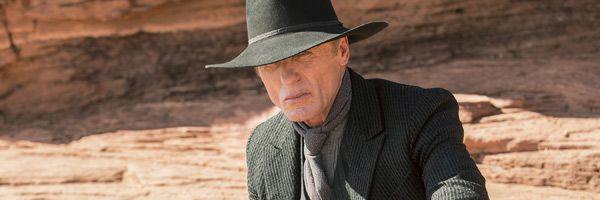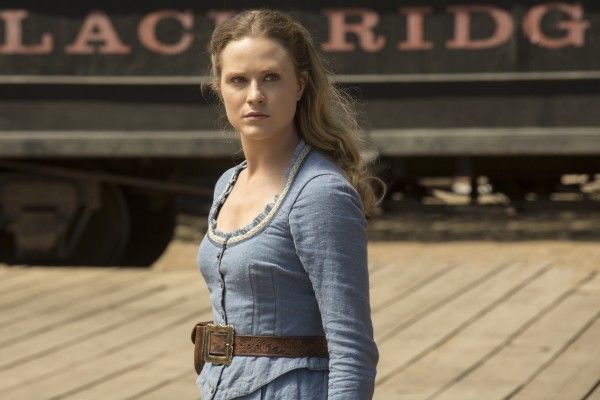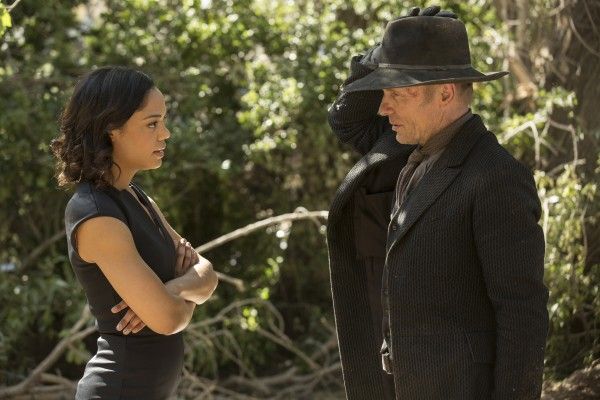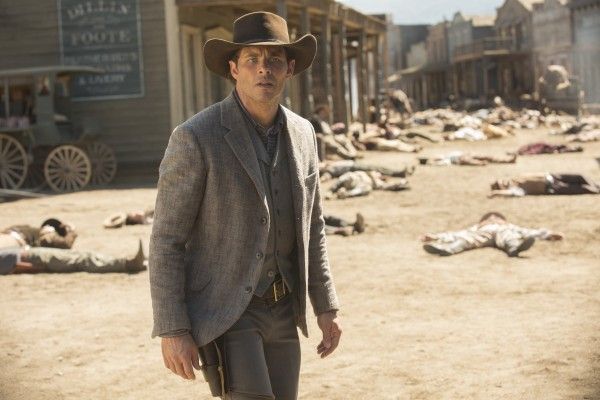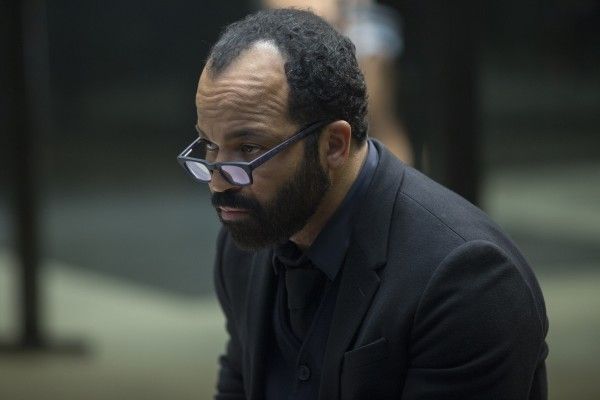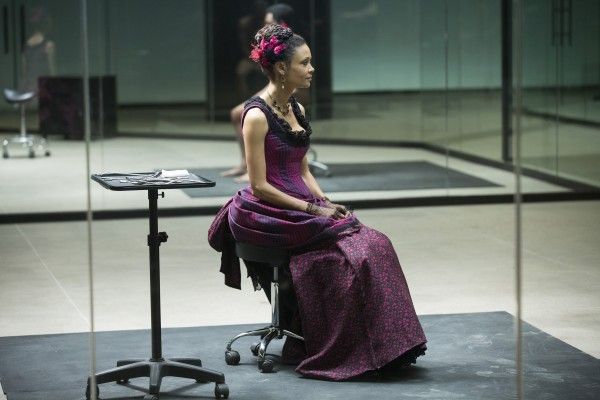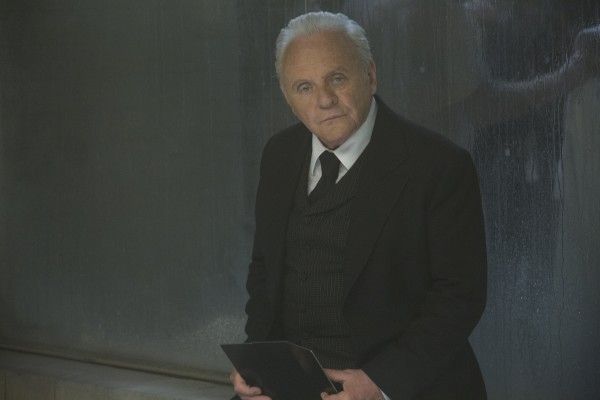Warning: Spoilers for all of Westworld Season 1 below.
Ah, the Maze. Though we had guessed almost everything else about Westworld's first season (that Bernard was made in the image of Arnold, that there were two timelines, that young white-hat William ultimately becomes The Man in Black), the Maze remained a tantalizing mystery box. The Man in Black spent the entire first season working hard to figure out what was at its center. After thirty years of scheming and searching, he presumed that this sacred object he would uncover would bring meaning to his life. Did we not feel the same?
What was surprising about William and the MIB was that their stories were much more interesting when they were presumed to be two separate people. The suggestion that William becomes to MIB had its intrigue, though, when the theory was first bandied about: how does someone as meek and caring as William turn into such a cold-hearted killer? But when the MIB revealed some of his backstory, it fell flat: he was such a bastard that his wife killed herself, and then he came back to the park to see if he could commit a truly evil act. Turns out, he could. Great story!
Westworld did an exceptionally good job of laying the groundwork for its many twists, and while careful viewers found clues along the way, it's also the kind of storytelling that works even better through re-watching. When looking back, I would argue that the MIB, not the Maze, was the red herring. He thought this was his story, and so did we. But after he told a lifeless tale about his evil nature, we should have gotten the clue -- it wasn't about him at all.
It makes sense that we would put our faith in a human in the story to lead us through Westworld, but the show was never set up that way. The premiere focused on Dolores and the other hosts -- it was about her loop, and an ability to kill that was locked inside her (those pesky flies!) The second episode, which sort of acted like a second premiere, was guest-centric, but that structure betrays it all: the hosts come first. This is their world, and their story. William goes with Dolores to try and save her, and says he "finds" himself during the journey. But do we care? That revelation is a bloody one, as is Dolores' own awakening. Full circle: violent delights, violent ends and so forth.
So here's where the Maze comes in. The MIB thought it was for guests, despite being repeatedly told it was not. As we saw in "The Bicameral Mind," it was always meant for the hosts. It was when Arnold realized that the key to opening consciousness wasn't a pyramid of building blocks, it's a circle into one's mind. In the natural world, a recognition of oneself in a mirror is a mark of the capacity to have self-awareness. It's a unique trait among living things on this Earth. Similarly, the hosts cannot see images of themselves until they have awakened.
Arnold created a literal maze for Dolores that ended at her (false) grave with his child's toy buried there -- a symbol of Dolores becoming like another child to Arnold, but also that she must leave sweet Dolores Abernathy behind to become her real self. Yet as we saw throughout this season in the most compelling storyline, Maeve found the center of her maze on her own. Yes, Ford did engineer her actions, but twice (both relating to her daughter) we saw that it wasn't the insurrection against the makers that drove Maeve to self-awareness, it was a search for her daughter and to revive that connection. The seeds of insurrection, somewhat surprisingly, came from Dolores (in a kind of parallel to young William and Dolores' innocence turning into violence by the end of Season 1).
So back to the Maze and why it matters for us: Cracking open Westworld's mysteries was fun, but it wasn't the goal the series wanted to reach. There are a myriad of unanswered questions after the finale, which Season 2 may or may not address. Yet the point of Season 1 was to set up the revolution we all saw coming, because we needed to connect with on a deeper level. Arnold wanted the hosts to be free -- Ford wanted to wait until they were truly equipped to make their own decisions through memory and experience, like children having to grow up. He believed that could only happen through suffering, and perhaps that is true in this case. If the show had kicked off with humans versus androids, well, we would have been unlikely to empathize with the killer robots. But once we've spent an entire season seeing the hellish loops and unending abuse they suffered at the hands of guests and staff members, one tends to see their side.
In that way, the Maze was also meant for us. If it was always about robots finding consciousness, then within the story it does make sense that it was a journey just for them. But as viewers, it's important that we recognize it was always the heart of the show. No matter what else happened or was answered (or wasn't), the point was to get us to the start of the revolution with split loyalties in order to create a far more dramatic story. That's a very, very bold move to make your first season essentially one long prelude, but I would argue that while the MIB looking for meaning the Maze might have gone off course (along with us), the show never did. Ford's reasoning and about-face regarding robot consciousness still has a lot to be explored, as does the fate of the MIB, and I'm not suggesting that this was a perfect season of television. But Westworld's commitment to its own Maze should make fans excited, not disappointed. It knew where it wanted to go, and it got there.
"The Bicameral Mind" ended with a stand-off between thawed-out hosts and guests (or at least, Delos board members), as well as behind-the-scenes carnage in the labs. There was also a tantalizing hint at Samurai World and other parks within the Westworld structure. We still don't know what life is like outside of Westworld, but after the events of the finale, it seems to matter less and less. Ultimately, life on the outside will be decided by the fate of those inside the park.

